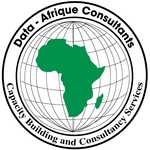|
|
Multi Hazard Risk Assessment Training
USD 2,950 |
Venue: Nairobi
This course deals with the procedures to collect, analyze and evaluate spatial information for risk assessment from natural and human-induced hazards (such as geological hazard, hydro-meteorological hazards, environmental hazards and technological hazards). The course will guide you through the entire process of risk assessment, on the basis of a case study of a city exposed to multiple hazards, in a developing country (Risk City). Also, a number of case studies are used from Europe (Italy, France), China, and Georgia.
COURSE OBJECTIVES
At the end of this course the participants will be able to:
- Understand the concepts of hazard assessment, elements at risk mapping, vulnerability assessment, and risk assessment;
- Formulate the spatial data requirements for risk assessment;
- Generate an elements at risk data base using GIS;
- Formulate the requirements of hazard data and methods;
- Apply various methods for vulnerability assessment;
- Generate risk maps using qualitative and quantitative methods;
- Have insight in how a risk assessment could be carried out in your own situation;
DURATION
5 Days
WHO SHOULD ATTEND
The training is intended for professionals working in development areas mostly.
COURSE CONTENT
Module 1: Introduction to risk assessment
- Theory: Introduction to disaster risk management and risk assessment.
- Exercise: Generation of a hazard profile using disaster databases; Introduction to ILWIS, and introduction to the RiskCity dataset. Learn the various hazard problems by evaluating high-resolution images
Module 2: Obtaining spatial data for risk assessment
- Theory: Presentation of data requirements for the various types of hazards. Sources of spatial data.
- Exercises: Defining spatial data requirements for risk assessment; Internet search for information on risk assessment; acquiring free and low-cost data; generating three-dimensional image data using Google Earth; stereo image interpretation
Module 3: Hazard Assessment
- Theory: Hazard types; Main concepts of hazard assessment; Frequency magnitude – relationships
- Exercises: Frequency assessment; Selection of hazard assessment example (flooding, landslides, earthquakes, technological hazards, volcanic hazards etc)
Module 4: Elements of risk assessment
- Theory: Types of elements at risk; classification of buildings, infrastructure, lifelines, critical facilities; population information; a collection of elements at risk information.
- Exercise: Generating elements at risk database from scratch; Generating elements at risk database using available data (building footprint map, census data, and LiDAR)
Module 5: Vulnerability assessment
- Theory: Types of vulnerability; social vulnerability; physical vulnerability; methods for vulnerability assessment; participatory GIS; Spatial Multi-Criteria Evaluation
- Exercises: Defining vulnerability curves; Spatial Multicriteria evaluation for vulnerability assessment
Module 6: Risk assessment
- Theory: Loss estimation models; HAZUS; qualitative risk assessment; QRA; basics of flood risk, seismic risk, landslide and technological risk assessment;
- Exercises: Creating risk curves; Selection of risk assessment method: flooding, earthquakes, landslides, technological.
Module 7: Risk Management
- Theory: Risk evaluation; risk governance; risk communication; cost-benefit analysis; Using risk information for emergency planning; spatial planning, and Environmental Impact Assessment
- Exercises: Multi-hazard risk assessment for buildings; assessing economic losses; Cost benefit analysis
Module 8: Final project and examination
- Discussion: How to do such a study in your area?
- Final Project: Selection of project topic related to risk assessment and its use in risk management
GENERAL NOTES
- This course is delivered by our seasoned trainers who have vast experience as expert professionals in the respective fields of practice. The course is taught through a mix of practical activities, theory, group works and case studies.
- Training manuals and additional reference materials are provided to the participants.
- Upon successful completion of this course, participants will be issued with a certificate.
| Nairobi | Dec 09 - 13 Dec, 2024 |
Class Session: 08:00:am - 04:00:am
| USD 2,950.00 | (Kigali) |
| USD 4,500.00 | (Dubai) |
| USD 1,500.00 | (Nairobi) |
| USD 1,500.00 | (Mombasa) |
DUNCAN KARIUKI +254723360025



